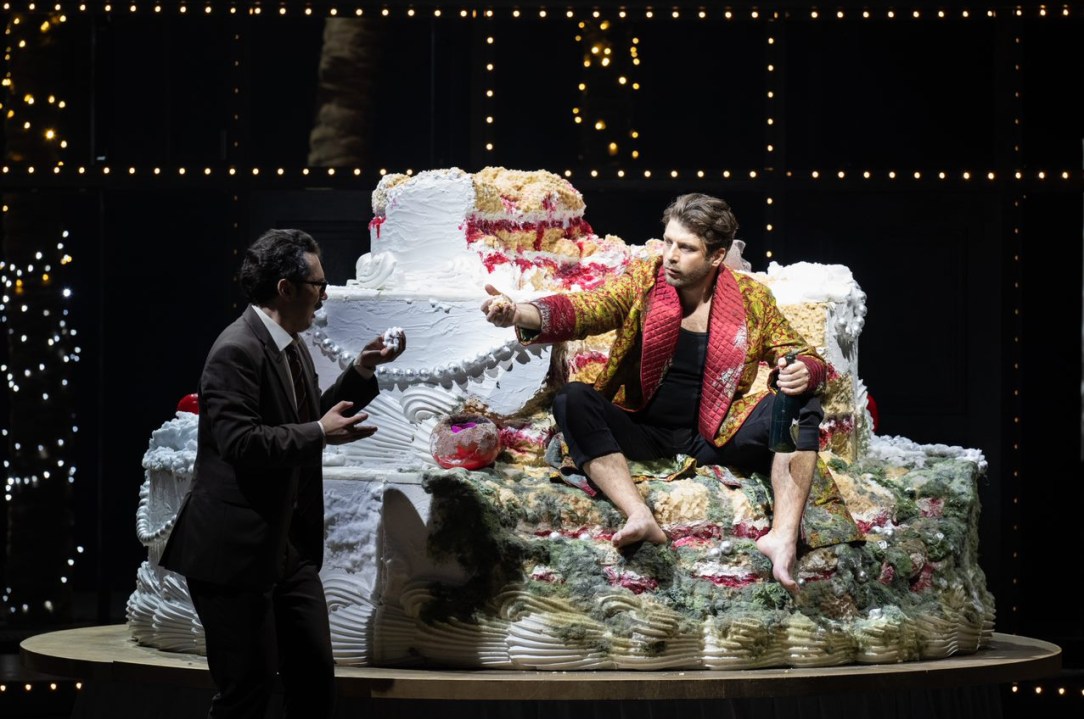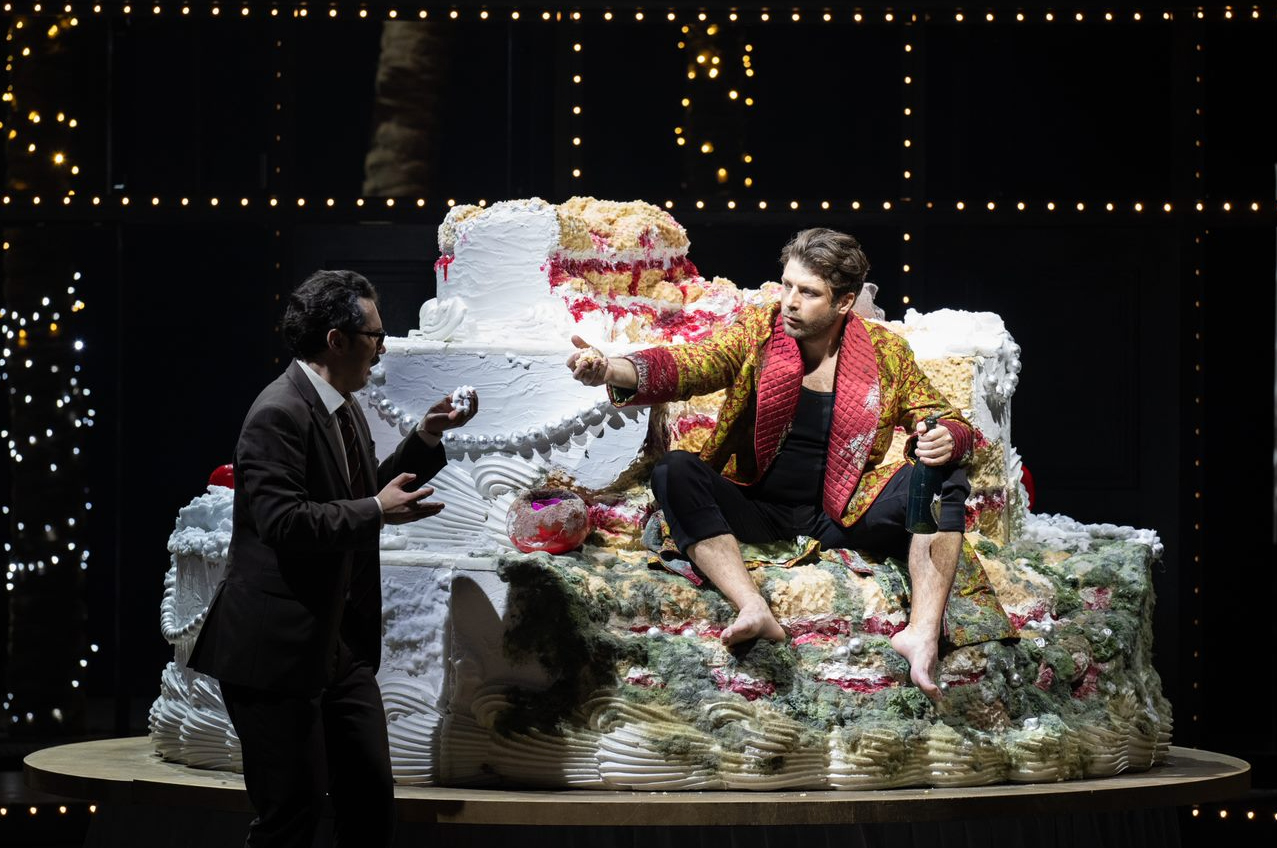Are you supposed to laugh at the end of Don Giovanni? Audiences often do, and they did at the end of Mariame Clément’s new production at Glyndebourne. It’s usually the bit where Donna Anna’s fiancé Don Ottavio suggests that they get married sharpish, and she immediately asks him for a year’s delay. Readers of Middlemarch will know that a year’s formal mourning after the death of a close relative was a common pre-modern convention, and Mozart’s writings suggest that he (if not his librettist) questioned neither the sanctity of marriage nor the reality of Hell. That doesn’t bother many modern directors, though, and if they’ve presented Anna as a kickass girl boss and Ottavio as a clingy milksop (not that hard, to be fair) it generally gets a reliable guffaw.
That wasn’t the case here, exactly. True, there was plenty to laugh at – Elvira’s late-onset commitment to a life of prayer is another trigger for contemporary mirth, heightened in this instance by the fact that we’ve just seen her attempting to fellate Leporello. But it didn’t feel like laughter at a punchline; more like the genuine release of tension that da Ponte presumably intended, and which Mozart wrote into the brilliant, borderline-hysterical quavers that introduce the final ensemble. In Clément’s production there really was a shock to react against. Giovanni’s fate was as startling and as visually spectacular as any 18th-century audience could have wished. No post-modern fudging here: you’re left in no doubt at all that higher powers are in play and that the Don (Andrey Zhilikhovsky) is basically toast.
Giovanni’s fate was as startling and as visually spectacular as any 18th-century audience could have wished
Oleksiy Palchykov’s Ottavio, meanwhile, was no sitcom boyfriend but a figure of integrity and weight, however ineffective his campaign against Giovanni. Palchykov’s tenor is trim rather than sensual, but he shaped his lines with such poise and sincerity that you could understand why Leporello (Mikhail Timoshenko) was listening with every sign of admiration: the alternative to Giovanni didn’t look at all bad.








Comments
Join the debate for just £1 a month
Be part of the conversation with other Spectator readers by getting your first three months for £3.
UNLOCK ACCESS Just £1 a monthAlready a subscriber? Log in